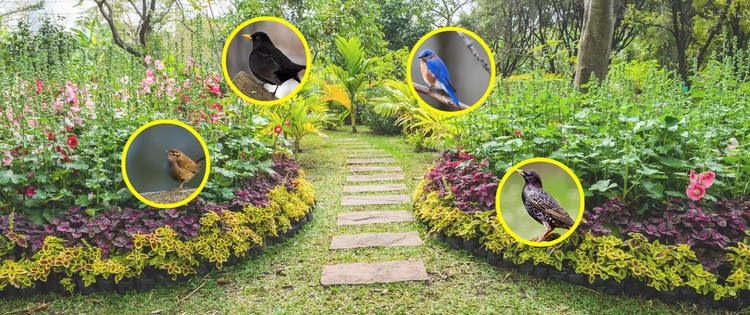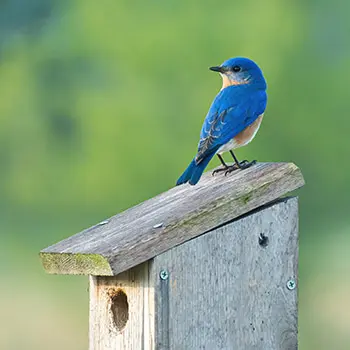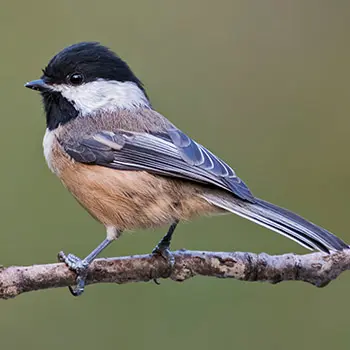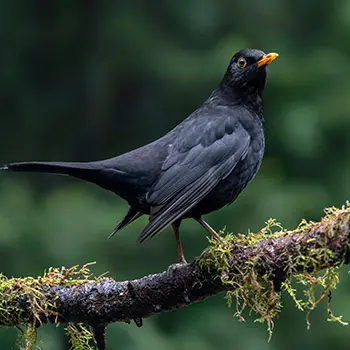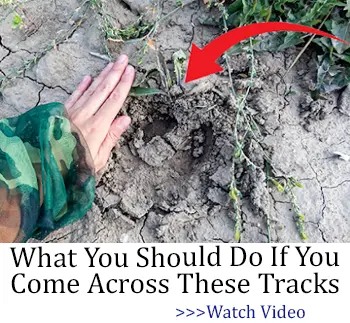Butterflies fluttering, bees buzzing, birds chirping- wait a second. Don’t we want all birds to stay away from our gardens? Isn’t that why N*Sync’s Bye Bye Bye CD is out there swirling in the breeze, trying to confuse and distract the birds?
Well, yes. …And no. Like most relationships today, it’s complicated. Some birds are quite beneficial for the home garden, while others are an absolute travesty. Which ones are which? We’re going to look at a small selection of birds that you might want for your home garden, and two that should certainly stay away. Let’s get started.
Birds You Want to Attract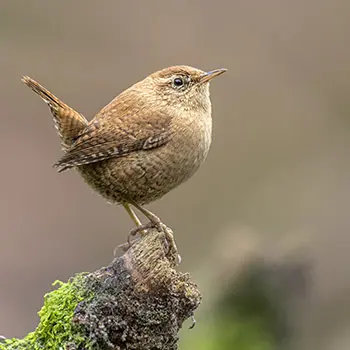
Wrens
The beautiful family group of wrens is always welcome in our gardens. Why? During the growing season (spring and summer), wrens eat a high-protein diet of insects. The best part? They tend to leave the beneficial ones alone.
Though we can’t speak for every wren out there, most of them prefer a diet of leaf-crunching caterpillars and their ilk. We need butterflies, we need moths, but we certainly don’t need all of those caterpillars to eat our crops, either. While we need to be mindful to strike a careful balance, wrens are an excellent addition to the garden.
Better yet, wrens aren’t picky about where they set up their homes. You can offer them a birdhouse, but they’re just as happy to settle a nest in any nook, cranny, or hole that they can find. My suggestion for attracting wrens? Have some quiet areas that offer cover without being extremely high up. Most wrens prefer a nesting area between 3 ft and 8 ft off the ground, with few expending the energy to fly to high trees. Barn eaves are a perfect place for them to nest.
Bluebirds
Bluebirds are not only gorgeous, but they eat their share of aggressive insects, too. Better yet, their flashy colors tend to drive away more predatory birds (unless those birds are actively hunting the bluebirds themselves) and encourage even more butterflies and beneficial insects to flock to your garden. Why?
Ever wonder why your flowers are so brightly colored? Those flashy looks help to encourage curiosity in these pollinating insects whose eye cones can only pick up certain appearances. Bluebirds, with their bright hues, also help with that matter.
The best nesting places for bluebirds are about 30 feet up in the air and, ideally, facing shelter. A tree is totally fine.
Related: How To Attract Toads and Frogs to Your Garden (And Why You Should Do It)
Chickadees
While chickadees are possibly going to steal your corn seeds (put some netting over it to prevent this from happening), most of them are just happy to be welcome in your garden. Better yet, like these other two wonderful birds mentioned above, they’ll go to bat for you to try to clear out predatory insects and their eggs.
That’s right, chickadees will happily go after insect eggs that are visible to the human eye. That’s pretty impressive for such a tiny, peppy little bird. So while you’re enjoying their cheerful songs, remember that they’re busy taking care of a pretty big pest problem for you.
Don’t place a feeder, but do offer a small box of wood shavings (untreated) to encourage chickadees to nest on your property. They may or may not use the box, but they’ll certainly steal every wood chip to go make a new nesting area when they’re ready for it.
To Avoid
Unfortunately, some of the most common birds in the United States are ones that we’d like to avoid in our gardens. …And for various reasons. Let’s look at two of the least popular garden inhabitants we’d like to see exiled somewhere else.
Blackbirds
With their gorgeous dark feathers and oil-slick-like appearance, blackbirds are a beautiful sight… just not in your garden. They can also be extreme bullies at any bird feeders in your area, so make sure to feed a simple seed that includes safflower (or is mostly safflower, in fact) because they simply hate the taste of it.
The best thing you can do with blackbirds is to work on prevention. While we’re sure that you’re already netting your berries, try growing them in enclosed areas or areas where the birds are not welcome. Berries in your yard are one of the reasons blackbirds keep showing up; these birds absolutely love underripe berries and will strip your entire plant before you have a chance to see a single blackberry make it to maturity.
Though helpful in spreading seeds through their manure, the last thing you want is a bunch of plants growing where they aren’t supposed to. Net plants that they enjoy (again, such as berries) and, if worst comes to worst, play blackbird alarm calls near a window. They’ll stay away, assuming that the property is very dangerous.
Related:8 Best Natural Ways To Stop Slugs And Snails From Destroying Your Plants
Starlings
Another bird that hates safflower seeds, starlings can be a big problem very quickly for the average gardener. Not only do these birds tend to run in enormous groups but they are voracious eaters that will tear up every plant they can get their little beaks on either looking for nesting materials or for food.
There are several ways to deal with starlings, but, bluntly, if they are invasive in your area (and many subspecies are!) your best bet may simply to be to speak with your local falconry club. Most of them can humanely deal with a starling invasion with their predatory birds, preventing your garden’s enormous losses and stopping an invasive species from gaining more ground in your area. While not a gentle solution, not all things that are best in nature are, indeed, gentle.
If this can’t meet your needs, your second best bet is to invest in quite a lot of netting on anything that is going to bear fruit. Flowers should be safe, but any fruiting (or vegetable) plant is fair game for a starling mob.
What birds do you welcome to your garden? Which ones do you see most frequently and how have you attracted them in the past? Let us know in the comments down below, we’d love to hear all about them. And, as always, Happy Gardening!
Ingenious Ways to Looter Proof Your Garden
Native American Remedies That We Lost To History (Video)
What Happens When You Use Backing Soda In Your Garden?
25 Things We Did as Kids That Would Get Someone Arrested Today

